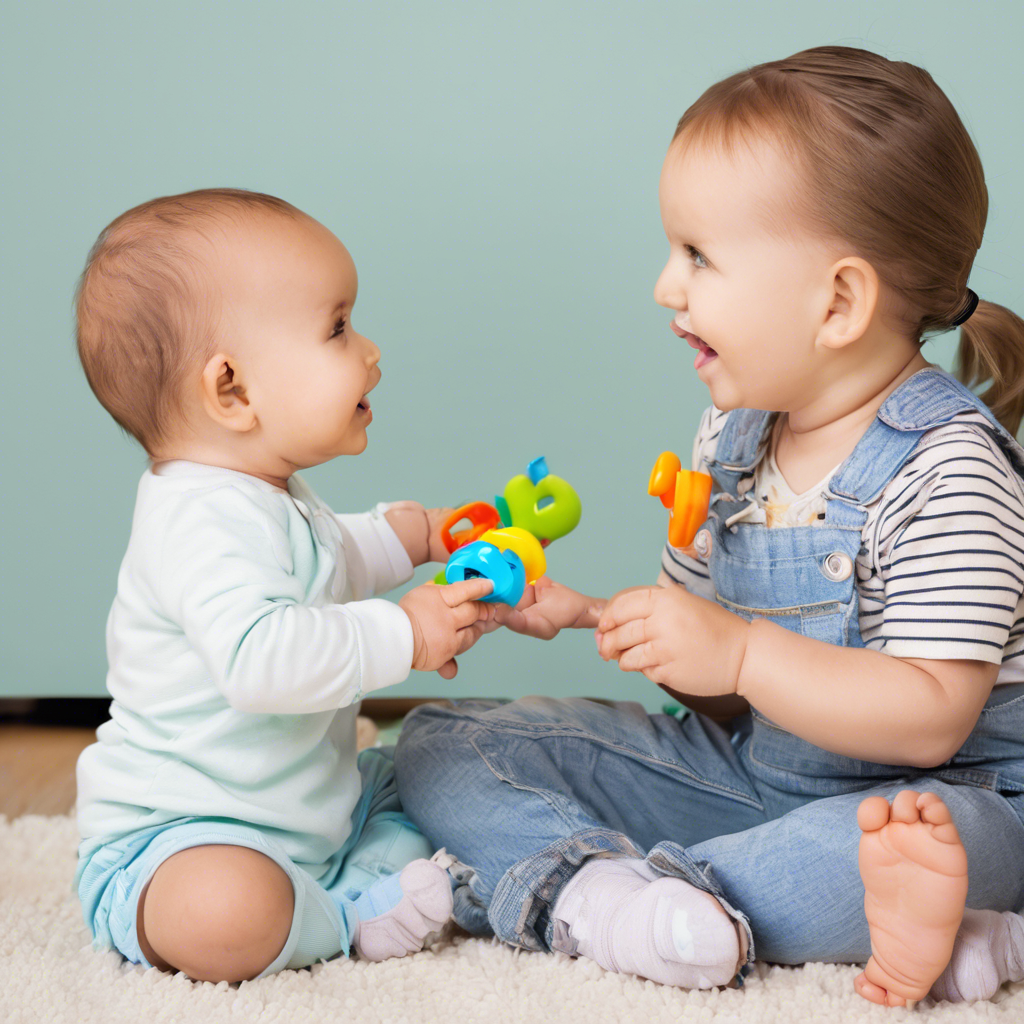Babies begin learning social skills from the moment they are born, absorbing information about human interaction through observation and experience. Even before they can speak, they communicate through facial expressions, body movements, and sounds. Helping a baby develop social skills is crucial for their emotional and cognitive development, as these early interactions shape their ability to connect with others in the future. Parents and caregivers play a vital role in guiding a baby’s social growth by creating a nurturing environment that fosters engagement, emotional intelligence, and confidence.
One of the first ways babies start interacting is through eye contact and facial expressions. When a baby gazes into a parent’s eyes, they are not just looking—they are learning. Eye contact strengthens the bond between a baby and their caregiver while also helping the baby understand emotions. Smiling back when a baby smiles reinforces positive interactions and encourages them to continue exploring social engagement. It’s important to exaggerate facial expressions when communicating with a baby, as this helps them recognize and interpret different emotions, such as happiness, surprise, or concern.
Talking to a baby, even before they understand words, helps build communication skills. Narrating daily activities, singing songs, and engaging in playful conversations introduce the baby to the rhythm and tone of speech. Babies respond to voices with coos and babbling, which are early forms of language development. Repeating their sounds back to them creates a back-and-forth interaction that mimics conversation, teaching them the foundation of communication. Studies show that babies who experience frequent verbal engagement tend to develop stronger language skills later in life.
Playtime is another essential aspect of social skill development. Interactive games like peekaboo, pat-a-cake, or simple hand-clapping games teach babies about social turn-taking and anticipation. Toys that encourage engagement, such as stuffed animals with expressive faces or activity mats with mirrors, help babies explore social cues. Parents should encourage social play by setting aside time for one-on-one interactions, allowing their baby to experience the joy of shared activities. These playful moments help babies build trust and understand the concept of social give-and-take.
Introducing a baby to different social settings from an early age helps them become comfortable around others. While a newborn primarily bonds with their parents, exposure to extended family members, friends, and other children allows them to experience a variety of social interactions. Visiting parks, attending playgroups, or arranging baby-friendly gatherings provides opportunities for the baby to observe and engage with new people. These interactions help babies become more adaptable and reduce the chances of social anxiety as they grow.
Emotional regulation is a crucial part of social development. Babies experience a range of emotions, from joy and excitement to frustration and distress. Teaching them how to navigate these feelings in a supportive way helps them build resilience. Comforting a baby when they are upset, acknowledging their emotions, and using soothing tones reinforce the idea that emotions are valid and manageable. Over time, babies learn to express their feelings more effectively, which strengthens their ability to form healthy social connections.
Encouraging empathy in babies starts with modeling compassionate behavior. Even though infants may not fully understand emotions, they can sense the moods of those around them. Expressing warmth, kindness, and understanding in daily interactions teaches babies to mirror these behaviors. When a baby shows signs of distress or concern for others, responding with gentle reassurance reinforces empathetic behavior. As they grow, toddlers begin to exhibit more intentional acts of kindness, such as offering a toy to a friend or comforting a crying sibling.
Nonverbal communication plays a significant role in social skill development. Babies rely heavily on body language, gestures, and touch to express themselves before they develop spoken language. Encouraging gestures such as waving, clapping, or reaching out for a hug enhances their ability to communicate emotions and desires. Using baby sign language for simple words like “more,” “milk,” or “help” can also improve a baby’s ability to express their needs, reducing frustration and fostering social confidence.
Responding to a baby’s cues in a consistent and nurturing manner builds a strong foundation for trust and security. Babies thrive in environments where their needs are met with attentiveness and warmth. When a caregiver responds to a baby’s cries, laughter, or expressions with care and engagement, the baby learns that communication is valuable and rewarding. This responsiveness encourages babies to continue interacting with their surroundings, strengthening their social abilities over time.
Social skills continue developing as a baby transitions into toddlerhood. Encouraging cooperative play, practicing patience during interactions, and setting gentle boundaries help toddlers refine their ability to navigate social situations. Teaching the importance of sharing, waiting for turns, and respecting others’ feelings prepares children for successful relationships later in life. Parents can support this growth by providing consistent encouragement, celebrating small milestones, and guiding their child through new social experiences.
Helping a baby develop social skills is an ongoing process that requires patience, consistency, and positive reinforcement. Every interaction contributes to a baby’s understanding of the world, shaping their ability to form meaningful connections. By engaging in responsive communication, encouraging playful interactions, and providing opportunities for social exploration, caregivers lay the foundation for a socially confident and emotionally secure child.

